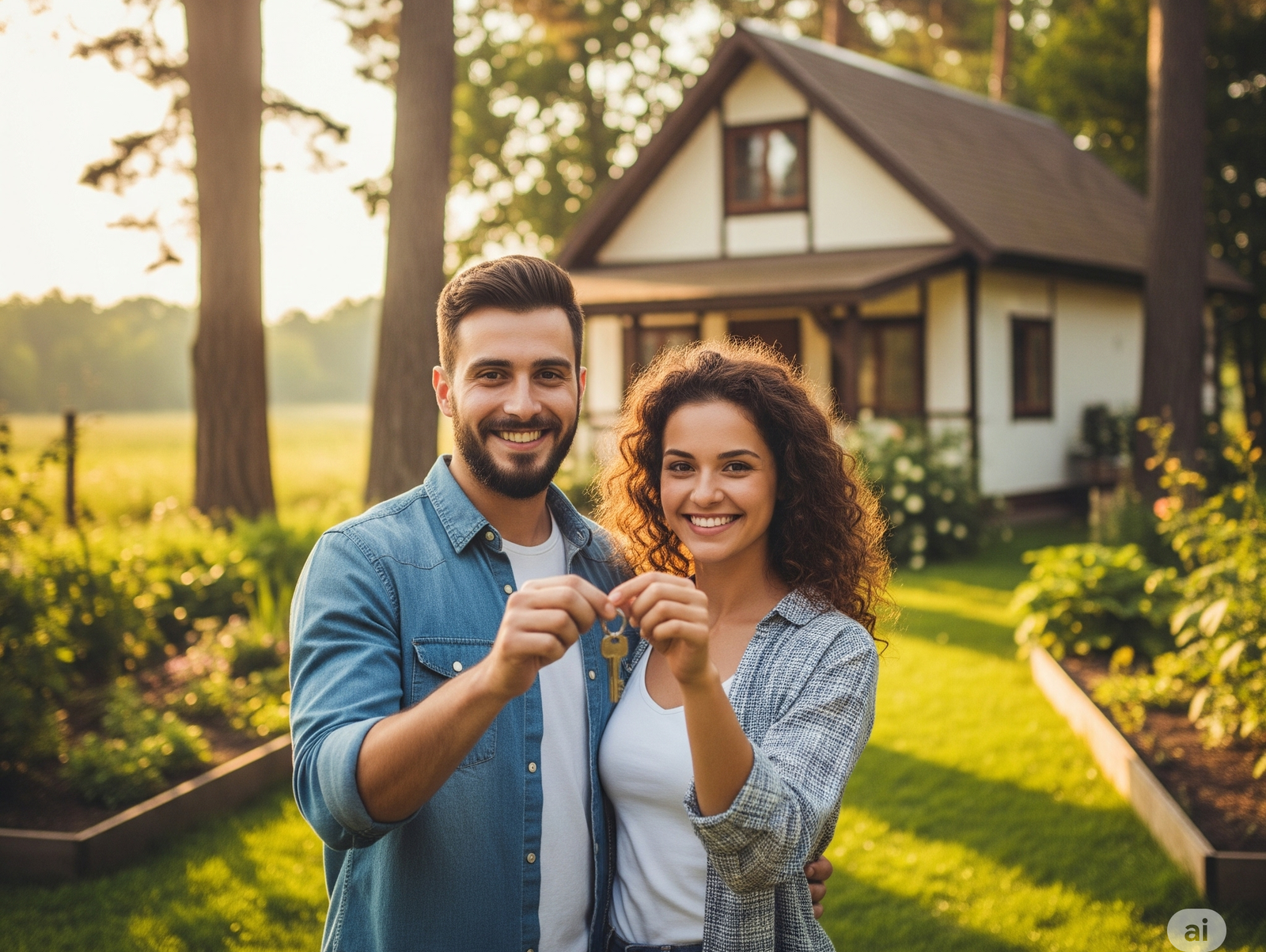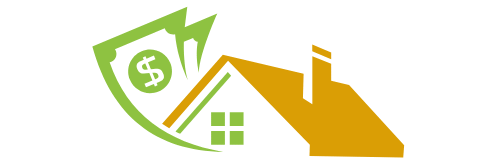Rural Mortgage Tips: How to Buy Your First Home with Low Income in the US

Imagine isso: você está sentado na varanda, tomando chá, olhando para um quintal que é todo seu. Sem senhorio batendo na sua porta, sem aluguel subindo todo ano — apenas uma casa que você pode chamar de sua. Sei que o dinheiro está curto e a ideia de comprar uma casa pode parecer desejar um milhão de dólares. Mas aqui está a boa notícia: com algumas dicas sobre hipotecas rurais , esse sonho não está tão distante quanto parece. Vamos conversar sobre como você — uma pessoa comum com uma renda pequena — pode fazer isso acontecer, especialmente em um local tranquilo e rural nos EUA.
Why Rural Mortgage Tips Make It Possible
Rural mortgage tips are like a secret weapon for folks like us. Out in the countryside, houses don’t cost as much as they do in big cities. Plus, there are special loans and helpers out there just for people wanting to live in small towns or wide-open spaces. I’m not talking about anything complicated—just practical stuff that fits your life. Maybe you’re working at a diner or fixing cars, pulling in just enough to get by. That’s okay! These tips are here to show you how to take what you’ve got and turn it into a home. Let’s walk through it together, like I’m sitting across from you with a cup of coffee, breaking it all down.
Getting Started: What You Need to Know
Buying a first home is like planting a seed—you start small, and it grows into something big. In rural areas, it’s even easier because the prices are lower, and there are people ready to help you out. Here’s how to get going:
Check Your Money
First, let’s look at what you’ve got coming in. How much do you make each month? Say you bring home $1,800 after taxes from your job. Now, write down what you spend—rent, groceries, gas, maybe a phone bill. If that adds up to $1,400, you’ve got $400 left. That’s your starting point. You don’t need a big pile of cash—just enough to cover a small house payment. Jake figured this out by scribbling it on a napkin, and it worked!
Save a Little Bit
You’ll need some money to get started, like a down payment—that’s the cash you give upfront. For a $100,000 house, it might be $3,000 or even less with the right help. Start small: put away $10 a week. That’s skipping one fast food meal. In a year, you’ve got over $500! Every little bit counts.
Cleaning Up Your Credit
Banks like to see if you’re good at paying bills. They check something called a credit score—it’s just a number that shows if you’re on time with money stuff. You don’t need it to be perfect. Here’s how to make it better:
- Pay on Time: Your electric bill, your car payment—get those in when they’re due. Set a reminder on your phone if you need to.
- Lower What You Owe: Got a credit card? Pay a little extra each month. Even $5 helps. Jake paid $15 extra, and it made a difference.
- Look for Mistakes: Sometimes, the bank gets it wrong. You can check your score for free online and tell them to fix anything funky.
Finding Money to Borrow
To buy a house, you borrow money from a bank and pay it back slowly. It’s like renting, but the house ends up being yours. In rural areas, there are special loans for people like you:
USDA Loans
These are awesome for first-time rural buyers. You might not even need a down payment—zero dollars upfront! They’re made for small towns and countryside spots. Look up online if your area fits—it’s easy to check.
FHA Loans
This one’s good if your credit isn’t the best. You only need a tiny down payment, like 3.5%. On a $100,000 house, that’s $3,500. It’s doable!
Talk to Someone
Walk into a bank or call them up. Say, “I want home loan advice rural style—I don’t make much.” They’ll point you to the right loan. Don’t be shy—they’re used to it.
Picking Your First Home
Now comes the fun part—finding a house! Rural areas have cheaper homes, so your money goes further. Here’s what to think about:
- Stay in Your Budget: Your house payment should be less than a third of what you make. If you get $1,800 a month, aim for $600 or less.
- Look Around: A house might be $80,000 in a small town instead of $200,000 in the city. More bang for your buck!
- Fixer-Uppers: Some houses need a little love—new paint, a fixed window. They cost less, and you can make them yours over time.
Jake found a little place for $90,000. It had a big yard and a porch—perfect for him.
Getting Ready to Buy
Before you pick a house, you need to know what the bank will give you. This is called pre-approval.
- Show Your Stuff: Take your pay stubs and bank papers to the bank. They’ll say how much you can borrow—like $95,000 or whatever fits.
- Get Help: A real estate agent knows houses and can show you around. They don’t cost you anything—the seller pays them.
Making It Yours
Found a house you love? Time to buy it!
- Check It Out: Pay someone to look at the house for problems—like $400 to make sure the roof’s good. It saves headaches later.
- Sign the Papers: You’ll sign a bunch of stuff to make it official. Ask questions if it’s confusing—everyone does.
- Extra Cash: Save a bit—like $2,000—for fees. Some loans help with this too.
What If You’re Nervous?
I get it—buying a first home feels huge. What if you don’t have enough? What if something goes wrong? Here’s how to calm those worries:
- Not Enough Money? Loans like USDA can cover the down payment. Save a little at a time—you’ll get there.
- Bad Credit? Some loans don’t care as much. Keep paying bills, and it’ll get better.
- Can’t Pay Later? Pick a cheap house. Banks can sometimes wait a month if you’re stuck.
Jake was scared too, but he took it slow and made it work.
Jake’s Story: From Renting to Owning
Jake was 28, working at the feed store, making $25,000 a year. He saved $800 over two years, got a USDA loan, and bought a $90,000 house. Now, he’s got a garden, a dog, and no landlord bugging him. He’s proof you don’t need a fancy job—just a plan.
Conclusion: Your Turn to Shine
Buying your first home with low income in the US isn’t just for other people—it’s for you too. With mortgage beginners USA tricks like saving a few bucks, picking the right loan, and finding a countryside gem, you’re closer than you think. Imagine unlocking your own door, knowing it’s yours. Start today—check your money, call a bank, or just picture it. I’m rooting for you, friend!
Key Points
- Save a little every week for your house.
- Try USDA or FHA loans—they’re made for people like you.
- Keep your house payment low—under a third of your pay.
- Ask a real estate agent for help—it’s free for you.
- Look at the house before you buy it.
- Don’t be afraid—lots of folks have done this!
